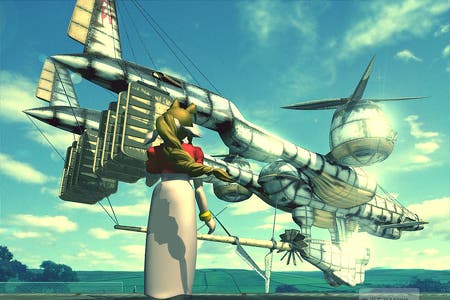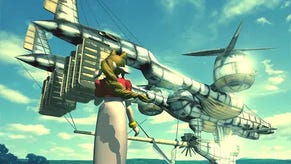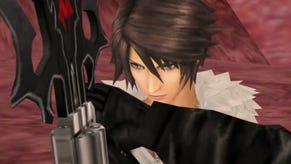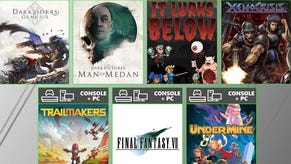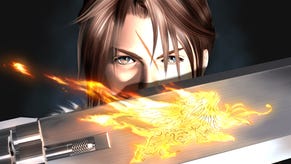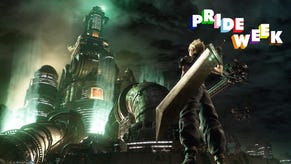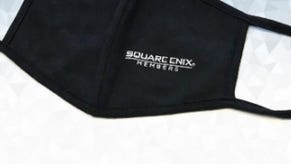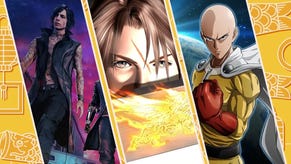Final Fantasy 7 Review
Cloud gaming.
Time has been cruel to Final Fantasy 7 - but perhaps not in the ways you expect. Sure, its 330 locations, pre-rendered in the finest CGI that yen could buy in 1997, now appear jagged and antiquated: a steam-punk world viewed through the mist of an 8-bit kettle. Its characters, once seemingly the most expressive actors ever pushed onto a video game stage, are now as strange as balloon animals, all bulges and protractions, their weird deformation all the more grotesque in high resolution.
But it's not these surface aspects of the game that have been most wounded by time's arrow. Rather, Final Fantasy 7 has suffered from 15 years of myth, anecdote and opinion. Primary-coloured headlines, fawning editorials and bar-stool critiques have overlooked much of the nuance of what is a broad, generous game - far more interesting and complex than the love/hate apologising accounts for.
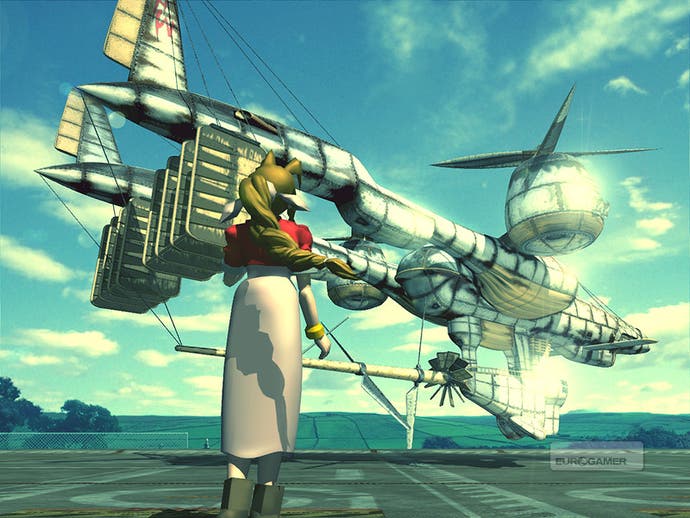
The second best-selling game on Sony's PlayStation, it's also known as the most returned video game of all time - players reportedly lured in by the visuals then repelled by the foreign foibles of the Japanese role-playing genre. Detractors accuse this flamboyant production, which cost $45 million and required 100 staff - unprecedented numbers at the time - of having spoiled the purity of the medium in its Hollywood-facing ambition. After all, here is an experience as much film as it is game, with its 40 minutes of video cut-scenes. Meanwhile, breathless thirtysomethings recount breaking down in tears at the unexpected turns of its story - these fans endlessly demanding a remake so that they just might feel that keenness of adolescent catharsis again.
Time has been cruel to Final Fantasy 7 because it has polarised us, turning discussion of a game into a much broader argument about what video games should be or what they should aspire to - interactive stories hoping to sweep players up in their predetermined drama, or something more organic and open-ended. And in the heat and bluster of that quarrel, we forgot about Final Fantasy 7, the game. We forgot about why this, of all games, started the debate. We forgot why it mattered.
Time has been cruel to Final Fantasy 7 because it has polarised us, turning discussion of a game into a much broader argument about what video games should be or what they should aspire to.
So its re-release on PC - available as a download direct from Square Enix - may not be the remake fans have clamoured for, but it is a gift of sorts: the opportunity to revisit a game which has been obscured by time, or memory, or bias. In that context, it is something of a revelation.
For one thing, Final Fantasy 7 is a funny game. We don't think of this series as a comedy - especially in its more recent, po-faced incarnations - but when the small band of terrorists you've fallen in with break into the sky-scraping Shinra headquarters, Final Fantasy 7's designers force you to climb no fewer than 57 flights of stairs as if this were a multi-billion-yen farce.
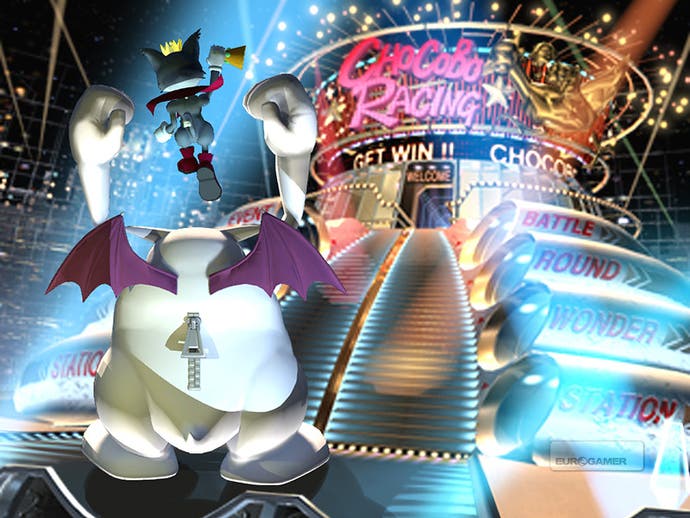
The first few flights are comfortably scaled as you sweep the analogue sticks from left to right, left to right. But by the fourth, fifth and six set your characters begin to put voice to your own complaints. Barrett, the team's leader - a hulking amputee whose defining features are his undying love for his daughter and the machine gun that's replaced his right forearm - moans the loudest, repeatedly asking Tifa, the matriarch of the group, if they're 'nearly there yet'.
The raid is the climax to the game's first act, the storming of the proverbial castle, with the twin aims of turning the evil multinational corporation to rubble and plucking the princess from deep within its belly. And yet the designers skewer this moment of dramatic tension with a joke about realism; a warning, perhaps, that with the quest for the lifelike in games comes the mundane.
Or there's the time you race around the seediest part of capital city Midgar's slums, trying to piece together a frock and accessories with which to dress protagonist Cloud as a convincing woman. You must break into the local pimp's mansion, you see, and, on a Saturday night, his security will only allow attractive women into the premises.
So you must convince the drunken local dressmaker to come out of retirement for one last job, find the most sparkly tiara you can and challenge a wrestler in the local gym to a squats competition in a wager for his voluptuous wig. The better you perform, the better the quality of your outfit, the more likely it is the pimp will want to sleep with you and you'll be able to confront him when his pants are, quite literally, down.
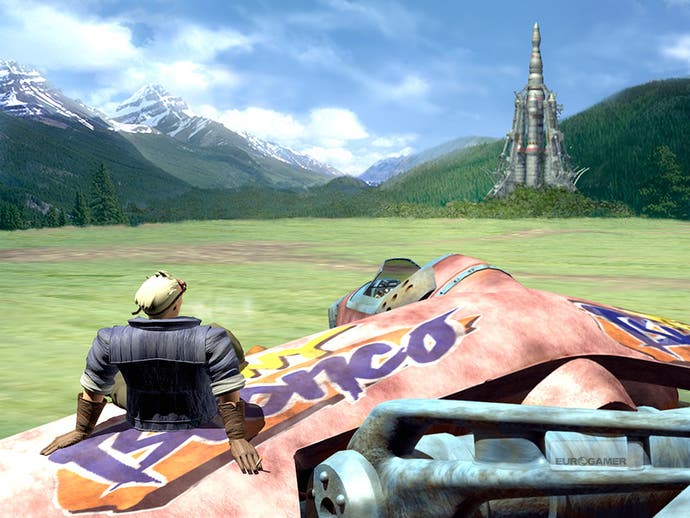
This note of irreverence underpins the game like a sub-bass note, and routinely reaches for more than mere laughs. Final Fantasy 7 is a game that starts with an act of terrorism; daring enough - but it also demands you be the one to pull the trigger.
AVALANCHE is an amateurish, scrappy band of terrorists, desperate to injure the corporation that's damaging the planet with its pollution and greed. But it's only after you make it back to your hideout in the slums after blowing up one of the reactors that fuel the capital city that you hear the news reports of the lives lost in the aftermath. Is such collateral damage excusable when fighting for a greater good in the world? It's a question the game returns to time and again, as the sacrifices pile up closer and closer to home.
Soon, you begin to lose those around you; non-player characters at first and then, finally and infamously, one of your own team members. The emotional effect is stronger not only because it is so surprising - even today, few game makers have the belief in their story to kill off a main character a third of the way into a game - but also because of the gentle, well-observed manner in which the relationships in your team have been developed.
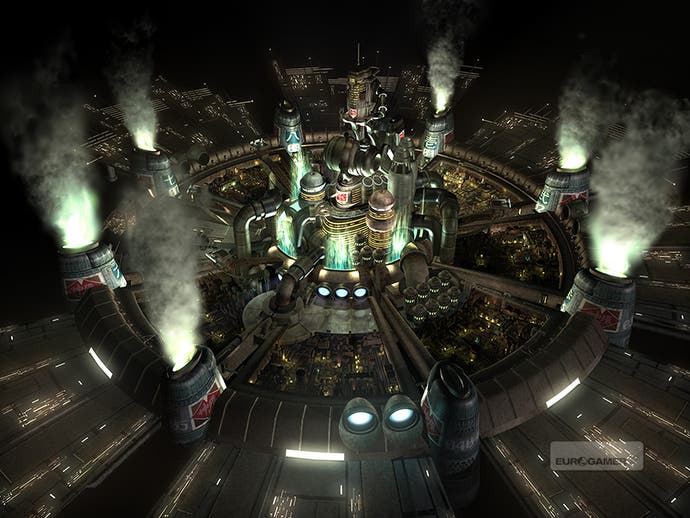
In particular, the relationship between Tifa, Cloud's childhood sweetheart, and Aeris, the mysterious yet approachable angelic figure into whose lap he falls early in the game, has a believability that defies the cartoonish science-fiction that surrounds them. Aeris, as the game's opening cinematic alludes to, is a rare flower in the dirt and grime of a fallen world. She's generous and beautiful in spirit, a life-giver in every sense. Her fate makes sense, then, even as it stings. In this world, as in ours, one's character is one's destiny.
Indeed, Final Fantasy 7 enjoys one of the strongest first acts of any press-X-to-unravel-story game. The script is equally tragic, absurdist and humorous, wrapped in a melancholy that never tips into sentimentality. The dialogue is straightforward, lacking flair and much in the way of voice - but it remains effective because the characters have clear motivations, desires and flaws, while the plot itself is elegantly structured.
The technological ambition of the game is always clear to see - a sort of rude, ostentatious belief on Squaresoft's part that anything was possible, anything was affordable.
And while the technological ambition of the game is always clear to see - a sort of rude, ostentatious belief on Squaresoft's part that anything was possible, anything was affordable - the graphical showboating serves and never masters the storytelling. Here is a development team in fine creative health, drunk with excitement about what the seismic graphical shift to three dimensions means for their medium, and yet somehow tempered into coherence.
As a piece of machinery, Final Fantasy 7 is simple. Its characters have predetermined special moves, while the magic system - which allows ability-granting gems to be equipped in weaponry and armour - affords just enough flexibility to stave off boredom over the long haul. The press-X-on-everything exploration can grow tiresome, but the infamous and capricious random battles that interrupt play as you run about the world don't grate nearly as much as you might expect.
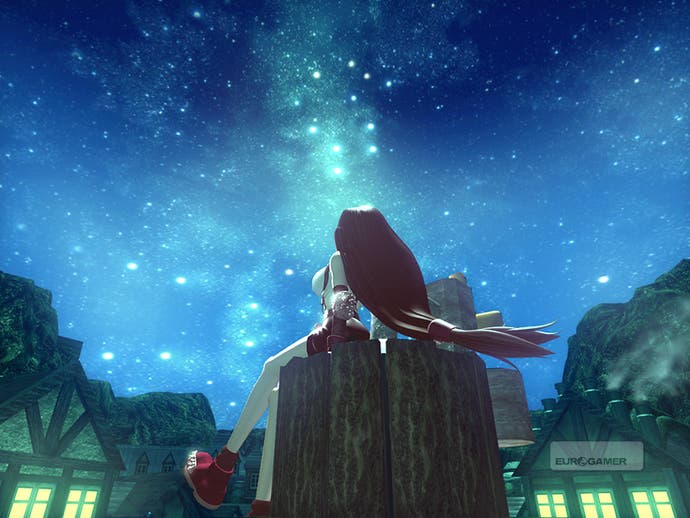
There's also a naivety at play here, with endless special-case mini-games and interactions that never repeat. From skiing to gambling to Chocobo breeding, the generosity of ideas adds up to contribute greatly to the sense of journey.
So time has actually been kind to Final Fantasy 7, the game - even if it has brought with it precious few embellishments. This PC re-release is bare bones, adding achievements and (fittingly) cloud saving, but nothing else.
It's enough. The original hyperbole of the experience still dazzles. As the gaming world marvelled at a new 3D dawn, Final Fantasy 7's stentorian soundtrack, epic summoning spells and soaring storyline seemed to draw itself up to the huge potential of disc-based games and 3D worlds. Today, those achievements stand, as does the memorable geography of the place. From the undulating peaks that can be circumvented in an airship to underwater caverns, explorable only via submarine, Final Fantasy 7's universe is as deep as it is broad - and as unforgettable as it is divisive.
